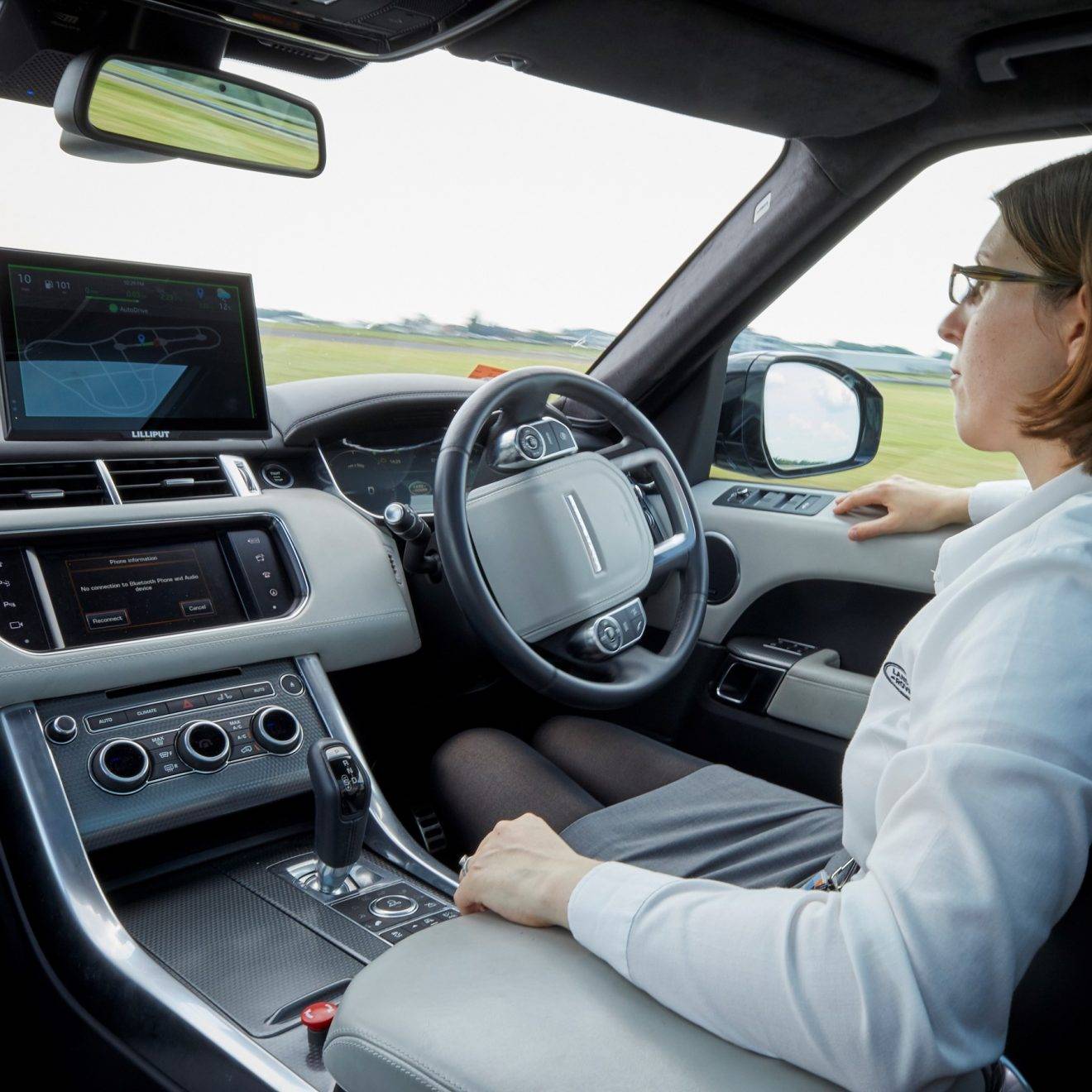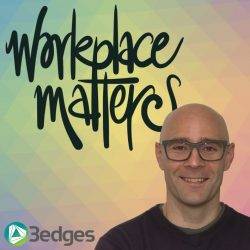|
|
|
|
|
|
Automation and data need radically new systems of governance
|

|
The current framework for governing automation and the management and use of data cannot keep pace with technological advances, according to a new report by the Royal Society and the British Academy. The report calls for the establishment of a new, independent body to steward an overall framework that can safeguard public confidence and ensure that the potential benefits of data use such as improved public services, better healthcare and business innovation are fully realised. The two National Academies convened leading figures from the Sciences, Humanities and Social Sciences to undertake a detailed review of the current governance landscape for data usage and management. Data Management and Use: Governance in the 21st Century found that data usage, data collection and management are increasingly intertwined, and new ways of using data make it difficult to define which data is sensitive. It found that, while the current governance architecture provides a lot of what is needed to deal with these challenges, there are clear gaps and too many silos, such that tensions between how individual and collective benefits and risks are negotiated are not always identified and addressed in a transparent and inclusive way.
|
|
Why using recyclable materials is no longer enough to protect the environment
|

|
A few years ago, the most commonly recognised symbol of humankind’s impact on the environment was the image of a solitary polar bear, adrift on a rapidly shrinking ice floe. Google a term like ‘melting ice caps’ even now, and you’ll still derive a host of variations of the same meme. More recently a new and even more unpleasant series of symbols has emerged for a similarly environmentally catastrophic phenomenon, carried worldwide on the tide of social media. This time, they are not about the way we pollute the atmosphere but also the land and seas, particularly with plastic. Social media feeds are packed with images of the corpses of seabirds, their flesh rotted away to expose the amount of plastic they have consumed. This is the new face of environmental disaster. This is not just an issue that affects birds, however. Barely a day passes when we cannot see a new image of turtles malformed after getting caught up in plastic netting or six pack rings, whales beached after choking on dozens of discarded plastic bags they’ve mistaken for food, clogged waterways and oceans, piles of rubbish and beaches that consist in large part of plastic eroded to the size of sand grains. Most recently Sky ran a heartbreaking documentary about a whale that had died with a stomach full of plastic rubbish.
|
|
|
|
|
|
The seven greatest depictions of the workplace in art. Possibly.
|

|
Art supposedly holds up a mirror to life. Except when it comes to our working lives, it doesn’t. Or at least it doesn't always show a true or full reflection, both in terms of the amount of time we dedicate to work and how important it is to us. Most of us spend at least a quarter of our time each week at (or on our way to) work. Many of us struggle to escape it in our own time too. We worry about it when we shouldn’t. It pays our way. It helps to define who we are. It structures our time. It introduces us to friends and partners. Yet in spite of the crucial role it plays in our lives, there are precious few depictions of the workplace in art. As is true of depiction of work in movies and music, it is almost invariably portrayed in a negative light, dehumanising drudgery replete with the potential for humiliation. Yet some artists have attempted to portray some of the complexities of work. These are some of my personal favourites.
|
|
Stress levels at work have grown, while productivity fell, but there is some good news
|

|
Stress and anxiety treatments have doubled over a decade, while 44 percent of workers say the world around them has become more stressful and complex. In the ten years since Bupa launched its first Wellbeing Report; people are working an extra 15.4 million hours every week, but productivity remaining low. However, on a more positive note, more employees than ever are prepared to talk about mental health issues with their employer. The research, which coincides with the launch of the Bupa Wellbeing Edit – a report into the key themes in workplace wellbeing, which includes insights from business and wellbeing experts, shows the number of people receiving mental health treatments has increased by 53 per cent in the last decade. Treatment for stress and anxiety have more than doubled over the last 10 years, which now stand at just under 70,000.
|
|
|
|
|
|
|
|
Middle-aged office workers are now more sedentary than pensioners, finds study
|

|
Most middle-aged office workers now spend as much time sitting down as older pensioners, according to a report. The research claims to have overturned previous studies that suggested that older adults are the most sedentary age group in the UK, when it appears to be middle aged office workers who move the least. The study highlights the potential health risks of excessive sitting at work. The study found that 45 to 54-year-old men spend on average 7.8 hours per weekday sitting down, compared with 7.4 hours for the over-75s. Sedentary work is the main reason for this inactivity. Researchers drew upon data from more than 14,000 people in Scotland, taken from the 2012-14 Scottish Health Survey. The findings from the University of Edinburgh’s Physical Activity for Health Research Centre are published in the Journal of Sports Sciences. Only the youngest group of men surveyed – 16 to 24-year-olds – are significantly less sedentary than the over 75s on weekdays.
|
|
The mere presence of a smartphone causes people to suffer brain drain
|

|
You may think it’s enough to mute or put away your smartphone when trying to carry out some focused work, but a new academic study suggests that the mere presence of a smartphone reduces our ability to concentrate. The study of over 500 subjects was carried out by researchers at the University of Texas and published in the Journal of the Association for Consumer Research, found that the brain suffers from the unconscious potential to browse, play games and communicate. Even when hidden in drawer or bag, the existence of a smartphone reduces people’s ability to carry out even relatively simple cognitive tasks. The study found a clear link between the location and status of the phone and how well people were able to concentrate on completing the test. The scientists said it showed that people should consider putting their phone in another room when they need to concentrate.
|
|
|
|
|
|
US experiences huge increase in telecommuting since 2005, claims study
|

|
FlexJobs and Global Workplace Analytics have published their 2017 State of Telecommuting in the US Employee Workforce report, which claims to be the most up-to-date and comprehensive data analysis available on the state of working from home in the United States. According to the study, the number of people telecommuting in the US increased by 115 percent between 2005 and 2015. Other key findings of the study include: 3.9 million U.S. employees, or 2.9 percent of the total U.S. workforce, work from home at least half of the time, up from 1.8 million in 2005 (a 115 percent increase since 2005); the average telecommuter is 46 years of age or older, has at least a bachelor’s degree, and earns a higher median salary than an in-office worker; roughly the same population of women and men telecommute; and in more than half of the top US metro areas telecommuting exceeds public transportation as the commute option of choice. The report's definition of telecommuting refers to non-self-employed people who principally work from home at least half of the time.
|
|
Majority of new managers are unprepared and unable to manage their teams
|

|
Businesses across the UK could be experiencing significant losses in productivity because managers are unprepared and unable to manage their teams new research suggests. The research which was carried out by chartered fellow of the CIPD Susan Binnersley MD of development consultancy H2H, found that a majority (77.42 percent) of managers didn’t feel prepared to take on their first management role. Only 21.5 percent of people felt they had the full support of their manager when taking over a team and 69 percent admit they spent the majority of their time not managing their team in their first management role. This gets worse over time with 74 percent saying they now spend majority of their time not managing their team today; 81 percent say this is because they spend a large part of their time doing tasks their team should be responsible for. The majority (72 percent) claim this is because they want to lead by example but more than half (51 percent) admit they feel the task if done quicker if they do it. Managers also admit struggling with delegation, with 35 percent saying the struggled to let go of control, 35 percent saying they didn’t feel they had the resources and 29 percent saying it didn’t feel fair to ask someone to do the task.
|
|
|
|
|
|
|
|
|
|
|
|
|
|
BIFM calls for views on the scope and future of facilities management profession
|

|
As part of its ongoing commitment to the FM profession and its members BIFM has commissioned research by independent consultants 3edges, to explore how well equipped the facilities management profession is to support the future world of work. As part of the study, a survey has been issued direct to BIFM members this week, covering aspects about individuals and their roles, the FM profession, workplace and BIFM. All BIFM members are invited and encouraged to participate. It is hoped that the findings will inform BIFM’s future direction as a professional body, enabling the Institute to refine its offering to both its members and the FM profession.
|
|
Largest trial of driverless vehicles takes to the streets of two cities in the UK
|

|
The UK’s largest trial of connected and autonomous vehicle technology has been given the green light to move out onto city streets, after a UK consortium completed its final set of private test track demonstrations. Project partners Jaguar Land Rover, Ford and Tata Motors European Technical Centre (TMETC) are set to trial vehicles on the roads of Milton Keynes and Coventry, as Jaguar Land Rover announced the latest version of their automated, driverless vehicle technology. The three vehicle manufacturers are taking part in the £20 million UK Autodrive research and development project, jointly funded by government and industry. UK Autodrive claims to be the first project in the UK to showcase the benefits of having cars that can “talk” to each other.
|
|
|
|
|
|
|
|
|
|
|
|
Case study: a unity of opposites at Sky Central
|

|
It’s drummed into us from an early age that we can’t have it all, as a result we consider choices as being a binary either/or situation. The workplace design brief (where it’s actually undertaken, an entirely separate discussion) positions choices similarly – open or closed, focussed or collaborative, modern or traditional – the decision point existing along a sliding scale from one natural extreme to the other. Yet there is a way to consider workplace design as an attempt to achieve the “unity of opposites”, an idea proposed by the pre-Socratic aphoristic philosopher, Heraclitus, the original thinker on change. This holds that the existence of an idea is entirely dependent on the existence of its opposite, that one cannot exist without the other. The framework is considered here in its application to the recently completed Sky Central in Osterley (West London), a newly constructed 38,000m2 NIA activity-based workplace over three floors that is home to 3,500 of the total 7,500 people on the Campus. It may be considered as tool for aiding workplace brief development, or for understanding how a workplace has been conceived and functions.
|
|
Artificial intelligence could add £232 billion to UK GDP
|

|
UK GDP could be around 10 percent higher in 2030 as a result of artificial intelligence (AI) - the equivalent of an additional £232 billion, according to new research by PwC. This makes AI the biggest commercial opportunity in today’s fast-changing economy, according to the report's authors. The research shows that the majority of the UK’s economic gains over the period to 2030 will come from increasing consumer demand resulting from AI driving a greater choice of products, increased personalisation of those products and making them more affordable over time. Labour productivity improvements will also drive GDP gains, but to a lesser extent. PwC’s research notes that the benefits from labour productivity growth will be felt first, with the increased consumption-led benefits from AI-enhanced products coming through later as more of them come onto the market. As this happens, competition within the AI goods market will increase dramatically, leading to future increases in the value of goods to consumers and therefore the amount people spend on them.
|
|
|
|
|
|
The changing world of people analytics and digital ethics in the workplace
|

|
This year’s Think FM conference at the Science Museum may prove to be a watershed moment for the global facilities management and workplace sectors, as its focus was on connectivity, data and the Internet of Things. The event’s keynote speaker was Ben Waber, one of the world’s leading thinkers on the ways in which this unprecedentedly connected era relates to people and the workplace. Ben is the president and CEO of people analytics firm Humanyze, an alumnus of MIT and a visiting scientist at MIT Media Lab. I was fortunate to be able to sit down with him recently to discuss the characteristics of this new age of connectivity and the changing nature of digital ethics and ask him whether the future of HR, IT and FM is at the mercy of people data analytics, amongst other things. This is becoming a common theme for the Workplace Matters podcast as we see a more widespread realisation that the workplace is no longer a merely physical entity and our attention shifts to people and how they interact with each other and the places they work. Subscribe and listen to this and all episodes on Acast or iTunes, on any mobile device.
|
|
Stranger than we can imagine: the future of work and place in the 21st Century
|

|
However much we know about the forces we expect to come into play in our time and however much we understand the various social, commercial, legislative, cultural and economic parameters we expect to direct them, most predictions of the future tend to come out as refractions or extrapolations of the present. This is a fact tacitly acknowledged by George Orwell's title for 1984, written in 1948, and is always the pinch of salt we can apply to science fiction and most of the predictions we come across. This is the fundamental reason why a typical report or feature looking to explore the future of work and workplaces invariably produces a hyped-up office of the present. This has sufficed to some degree up till now because the major driving force of change - technology - has developed in linear ways. Its major driver since Gordon Moore produced his eponymous law in 1965 has been miniaturisation. If we can expect computing power to double every 18 months, as Moore predicted, we at least have a degree of certainty about technological disruption. Of course, this has already had a profound effect on the way we work and the way we use buildings. So too has the secondary prime technological driver of the early 21st Century, the digitisation of the past and present.
|
|
|
|
|
|
|
|
|